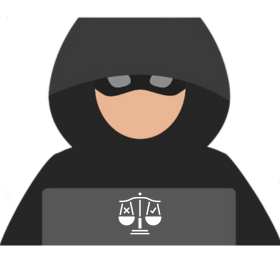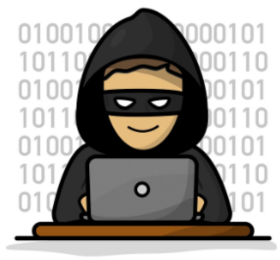Recognizing why hackers do what they do is essential for people and universities to stay safe from cyber threats. When we know how they think, their goals, and mindset, we can implement stronger security, make our online defenses stronger and be more alert to potential attacks. This can help us implement stronger security measures and be more aware of identifying possible adversaries. These insights not only empower UC Santa Cruz Information Security to continually enhance campus safety but also contribute to a range of articles covering online and data security.
In addition to this article, check out some security tips and data protection advice for a deep dive into keeping your information safe and secure.
Cracking the Code: What Drives Hackers?
There are various motivations behind why hackers do what they do. Below are some examples.
- Financial Gain - The goal of getting money. An example would be stealing passwords from your financial institution’s website, or utilizing other phishing techniques.
- Recognition / Achievement - The hackers want the fame associated with the hacking attack.
- Challenge - Competing with other hackers, and enjoying the thrill and challenge that hacking brings.
- Political Agendas - Might belong to a hacking group that wants to promote a certain political belief and targets those that have different beliefs.
- Revenge - Could have personal feud against an organization or an individual and use hacking to get back at them.
- Insider Threats - People inside an organization may also misuse their access, whether intentionally or unintentionally.
- Social Justice / Positive Change - Driven by a sense of social justice, using their hacking skills to find and show corruptions and social inequality.
Hacker Minds: Unveiling Psychological Profile
First off we need to define what a hacker is. A computer hacker is a tech-savvy person who can spot weaknesses in software and computer systems. It’s important to note that hackers can be good and bad.
- Ethical Hackers - are basically the cyber good guys; the ethical hackers who help organizations by finding and fixing security issues.

- Hacktivists - are hackers who have their own purposes such as political motives, and opposition to corporate policies.

- Malicious Hackers - the more malicious hackers who break into computer systems for their own revenge, gain, and even the thrill of the attack.

- Vigilante Hackers - are the cyber heroes trying to find the threatening malicious hackers and use the same tricks, such as malware and virus, against them.

- Blue Hat Hackers - are the security experts employed by companies to help improve their security systems.

- Script Kiddies - they are one of the worst kinds since they don't have much experience and are also hacking for non-ethical reasons.

Hacking Minds: Theories Unveiled
There are many theories on why hackers commit crimes and their process during. In the article (‘Hacker types, motivations and strategies: A comprehensive framework’), several theories are mentioned including the “Beeveren model of flow, Bandura’s social learning theory, and Depersonalized Obedience”.
In Beeveren’s model hackers are motivated by a strong urge to hack, curiosity, a desire for control and power, and the need for recognition within their hacker community. This desire to hack is caused by “flow”, described as being completely absorbed in an activity.
Bandura's social learning theory suggests that people can pick up criminal behaviors by associating with criminals in their social groups. However, people usually won't do bad things unless they find a way to convince themselves it's okay. In the cyber world, this can mean justifying their actions by believing they're fighting for a noble cause.
Depersonalized obedience means that hackers can act without thinking about the consequences because they feel detached from the real world when they're committing cybercrimes. This detachment also happens because they don't see the people they affect in person. For some hackers, they may focus on their cause and ignore the harm they cause others.
Defense: Protection and Prevention
While learning and understanding how hackers think and their psychology, it is also important to learn how to defend against hackers. With a good understanding of hackers it goes hand in hand.
Learn more about:


